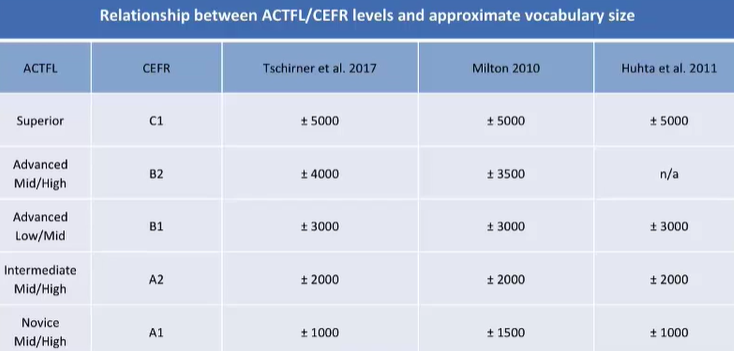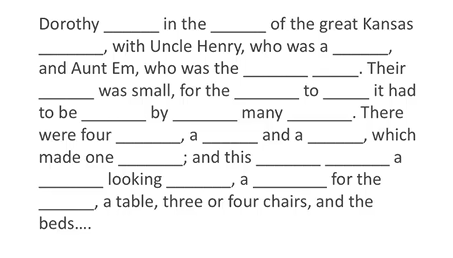To memorize vocab or not to memorize vocab? Posted by Transparent Language on Mar 3, 2021 in For Learners
To memorize or not to memorize, that is… not even a question. You’ve gotta do it.
We know you want to use your language, not flip through flashcards. But you can’t have meaningful conversations, read the news, or enjoy your next Netflix binge in the language without enough vocab to back you up.
Words matter.
Bottom line: you can’t attain advanced proficiency without grammar and pragmatics, but nothing drives proficiency gains faster than building vocabulary (especially for beginners).
All four skills (listening, speaking, reading, and writing) require vocabulary. For example, vocabulary has been shown to account for up to 72% of the variance in reading scores among language learners[1]. Another meta-analysis of many language-related studies found strong correlations between vocab size and reading comprehension[2].
This is probably confirmed many times over by your own experiences trying to use and understand your second language. You know how disruptive it is to try to read a sentence or ask someone a question and realize you don’t know the right words.
Authenticity matters.
Don’t believe the myth that explicit and purposeful vocab study is somehow inconsistent with the principles of communicative learning.
But by “explicit and purposeful” vocab study, we do not mean endless textbook vocabulary lists. We encourage you to learn vocabulary in the wild, through authentic sources like news articles, podcasts, songs, literature, social media, and beyond.
Authentic sources provide an opportunity for real-world, “scenario-driven” vocabulary learning. Our brains don’t organize vocabulary into semantic lists like “colors” and “numbers”—they organize it into situations like “rainy day”, which might include a bunch of topically-related nouns, verbs, adjectives, and expressions: puddle, umbrella, to downpour, raining cats and dogs, etc. Scenario-driven learning helps because it mirrors how vocabulary gets stored in our brains.
Interaction matters.
Ok, ok, you get it, vocab is important!
But vocabulary is not learned incidentally. Doing lots of reading or listening exposes you to a lot of contextualized learning, but for beginner or intermediate learners of a language, that context doesn’t help if you don’t have the requisite vocabulary (or cultural knowledge)!
One study found that readers need to know 98% of the words in a text to comfortably read and understand it[3]. Here’s what a passage from The Wizard of Oz looks like with almost 30% of the vocabulary blanked out:
Unless you’re a very advanced learner, you can’t expect to read or hear a word in context and just use context clues to figure it out like you might in your native language.
So what can you do to learn vocab that’s fast, fun, and effective?
Before you make a big stack of flashcards, we have some ideas for you! Join Bridgette Claery (a 5-year veteran language teacher!) to explore her favorite methods to make vocab learning fun and effective—no index cards required.
[1] Stæhr, L. S. (2008). Vocabulary size and the skills of listening, reading and writing. Language Learning Journal, 36(2), 139-152.
[2] Milton, J., & Alexiou, T. (2010). Developing a vocabulary size test for Greek as a foreign language
[3] Nation, I. S. P. (2001). Learning vocabulary in another language.

Build vocabulary, practice pronunciation, and more with Transparent Language Online. Available anytime, anywhere, on any device.






Comments:
Ros Floor:
Where is the chatbox? I could not participate in the polls
meaghan:
@Ros Floor Hello! You’re watching a replay of the live session, which took place earlier this month. During the replay, the interactive features (like the chatbox and polls) are turned off. Sorry about that. Stay tuned to this space for upcoming events so you can join us live next time. 🙂